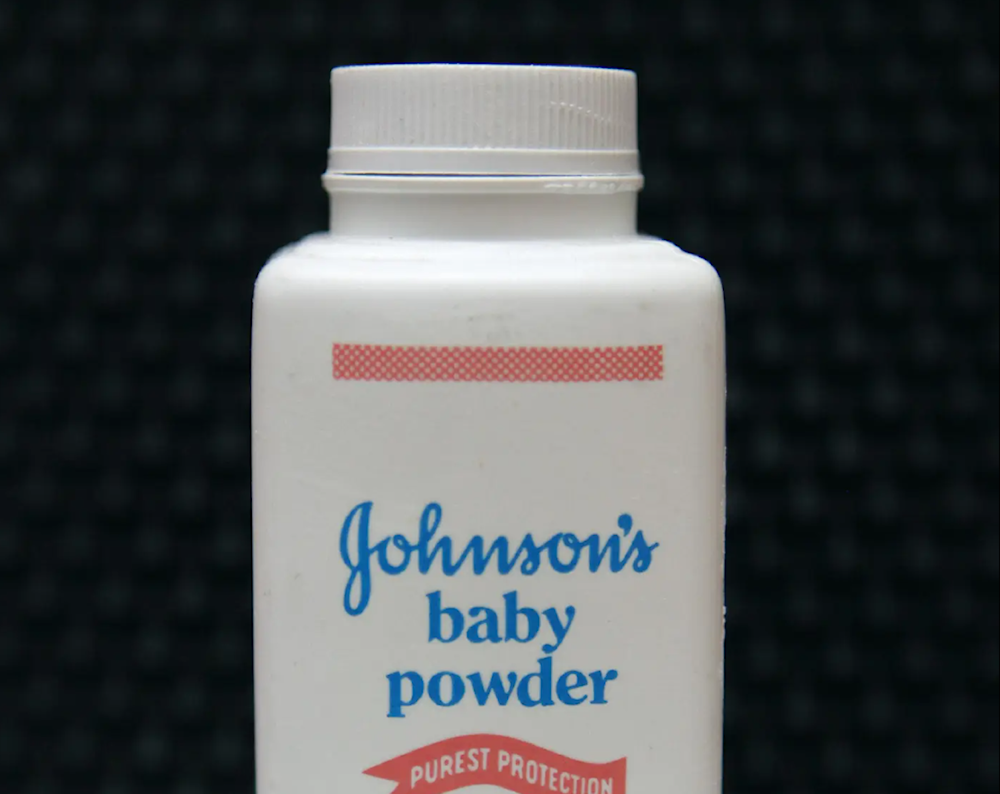WHO agency says talc 'probably' cancer-causing
According to the Lyon-based IARC, the majority of individuals are exposed to talc through baby powder and cosmetics.
-

A bottle of Johnson's baby powder was displayed on April 15, 2011, in San Francisco. (AP)
The World Health Organization's cancer department categorized talc as "probably carcinogenic" for humans on Friday, while an independent expert advised against misinterpreting the decision as a "smoking gun".
The judgment was based on "limited evidence" that talc might cause ovarian cancer in people, "sufficient evidence" that it was connected to cancer in rats, and "strong mechanistic evidence" that it showed carcinogenic signals in human cells, according to the WHO's International Agency for Research on Cancer (IARC).
The natural mineral is mined in various regions of the world and is commonly used to manufacture talcum powder.
According to the Lyon-based IARC, the majority of individuals are exposed to talc through baby powder and cosmetics.
However, the most substantial exposure to talc happens when it is mined, processed, or utilized to manufacture items, it noted.
The agency reported that numerous studies showed a link between women who used the mineral on their genital area and ovarian cancer. However, it could not be ruled out because the talc used in certain experiments was tainted with asbestos, which causes cancer.
According to the agency's findings published in The Lancet Oncology, "A causal role for talc could not be fully established."
Kevin McConway, a statistician at the UK's Open University, cautioned that the "most obvious interpretation is actually misleading" in the IARC's judgment.
The agency's goal is just "to answer the question of whether the substance has the potential to cause cancer, under some conditions that IARC do not specify," he stated.
Since the studies were observational and thus unable to establish causality, "there isn't a smoking gun that talc use causes any increased cancer risk," he noted.
A review of research published in 2020 that included 250,000 women in the United States found no statistical relationship between talc usage on the genitals and the incidence of ovarian cancer.
The news comes weeks after the Massachusetts Attorney General and 42 other state attorney generals came to a $700 million settlement with Johnson & Johnson over allegations of marketing the company's talc-containing baby powder and other powder products.
The proposed agreement aims to resolve the lawsuits by means of a third-party bankruptcy filing by one of Johnson & Johnson's subsidiary companies. A three-month voting period will commence, seeking consensus for a settlement encompassing all existing and prospective claims related to ovarian cancer.
Notably, ovarian cancer claims represent 99% of the talc-related lawsuits against J&J, with approximately 54,000 lawsuits consolidated in a federal court in New Jersey.
Johnson & Johnson has also committed to discontinue producing and distributing talc-containing baby powder and body powder products in the US, according to the announcement.
Also on Friday, the IARC categorized acrylonitrile, a chemical molecule used in polymer production, as "carcinogenic to humans," the highest warning category.
It claimed "sufficient evidence" to link acrylonitrile to lung cancer. Acrylonitrile polymers are utilized in a variety of applications, including clothing fibers, carpets, plastics, and other consumer items.

 3 Min Read
3 Min Read








